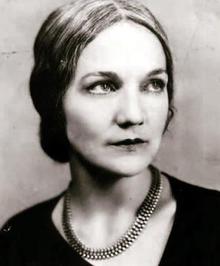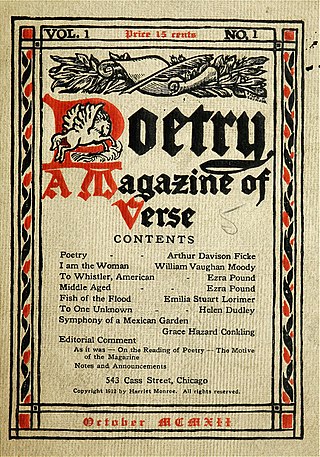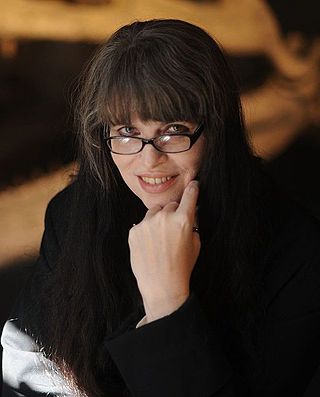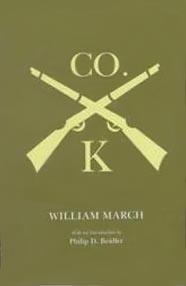
Truman Garcia Capote was an American novelist, screenwriter, playwright and actor. Several of his short stories, novels, and plays have been praised as literary classics, including the novella Breakfast at Tiffany's (1958) and the true crime novel In Cold Blood (1966), which he labeled a "non-fiction novel". His works have been adapted into more than 20 films and television dramas.

Death in the Clouds is a work of detective fiction by British writer Agatha Christie, first published in the US by Dodd, Mead and Company on 10 March 1935 under the title of Death in the Air and in the UK by the Collins Crime Club in July of the same year under Christie's original title. The US edition retailed at $2.00 and the UK edition at seven shillings and sixpence (7/6). The book features the Belgian detective Hercule Poirot and Chief Inspector Japp.

The Scottsboro Boys were nine African American teenage males accused in Alabama of raping two white women in 1931. The landmark set of legal cases from this incident dealt with racism and the right to a fair trial. The cases included a lynch mob before the suspects had been indicted, all-white juries, rushed trials, and disruptive mobs. It is commonly cited as an example of a legal injustice in the United States legal system.

John William Cheever was an American short story writer and novelist. He is sometimes called "the Chekhov of the suburbs". His fiction is mostly set in the Upper East Side of Manhattan; the Westchester suburbs; old New England villages based on various South Shore towns around Quincy, Massachusetts, where he was born; and Italy, especially Rome. His short stories included "The Enormous Radio", "Goodbye, My Brother", "The Five-Forty-Eight", "The Country Husband", and "The Swimmer", and he also wrote five novels: The Wapshot Chronicle , The Wapshot Scandal, Bullet Park (1969), Falconer (1977) and a novella Oh What a Paradise It Seems (1982).

Katherine Anne Porter was an American journalist, essayist, short story writer, novelist, poet and political activist. Her 1962 novel Ship of Fools was the best-selling novel in America that year, but her short stories received much more critical acclaim.

A literary magazine is a periodical devoted to literature in a broad sense. Literary magazines usually publish short stories, poetry, and essays, along with literary criticism, book reviews, biographical profiles of authors, interviews and letters. Literary magazines are often called literary journals, or little magazines, terms intended to contrast them with larger, commercial magazines.

Asa Earl Carter was a 1950s segregationist political activist, Ku Klux Klan organizer, and later Western novelist. He co-wrote George Wallace's well-known pro-segregation line of 1963, "Segregation now, segregation tomorrow, segregation forever", and ran in the Democratic primary for governor of Alabama on a white supremacist ticket. Years later, under the alias of supposedly Cherokee writer Forrest Carter, he wrote The Rebel Outlaw: Josey Wales (1972), a Western novel that led to a 1976 film featuring Clint Eastwood that was adopted into the National Film Registry, and The Education of Little Tree (1976), a best-selling, award-winning book which was marketed as a memoir but which turned out to be fiction.

Caitlín Rebekah Kiernan is an American paleontologist and writer of science fiction and dark fantasy works, including 10 novels, series of comic books, and more than 250 published short stories, novellas, and vignettes. Kiernan is a two-time recipient of both the World Fantasy and Bram Stoker awards.

Arthur Rothstein was an American photographer. Rothstein is recognized as one of America's premier photojournalists. During a career that spanned five decades, he provoked, entertained and informed the American people. His photographs ranged from a hometown baseball game to the drama of war, from struggling rural farmers to US Presidents.

Look was a biweekly, general-interest magazine published in Des Moines, Iowa, from 1937 to 1971, with editorial offices in New York City. It had an emphasis on photographs and photojournalism in addition to human interest and lifestyle articles. A large-sized magazine of 11 in × 14 in, it was a direct competitor to market leader Life, which began publication 3 months earlier and ended in 1972, 14 months after Look shut down.

Octavus Roy Cohen (1891–1959) was an early 20th century American writer specializing in ethnic comedies. His dialect comedy stories about African Americans gained popularity after being published in the Saturday Evening Post and were adapted into a series of short films by Al Christie featuring actors Charles Olden, Spencer Williams Jr., Evelyn Preer, and Edward Thompson.

William March was an American writer of psychological fiction and a highly decorated U.S. Marine. The author of six novels and four short-story collections, March was praised by critics but never attained great popularity.

William Edward Vickers (1889–1965) was an English mystery writer better known under his pen name Roy Vickers, but used also the pseudonyms Roy C. Vickers, David Durham, Sefton Kyle, and John Spencer. He is the author of over 60 crime novels and 80 short stories. Vickers is now remembered mostly for his attribution to Scotland Yard of a Department of Dead Ends, specialized in solving old, sometimes long-forgotten cases, mostly by chance encounters of odd bits of strange and apparently disconnected evidence.

Company K is a 1933 novel by William March, first serialised in parts in the New York magazine The Forum from 1930 to 1932, and published in its entirety by Smith and Haas on 19 January 1933, in New York. The book's title was taken from the Marine company that March served in during World War I. It has been regarded as one of the most significant works of literature to come out of the American World War I experience, and it is the most reprinted of all March's work.

Trial Balance: The Collected Short Stories of William March is a collection of short stories by American author William March, first published in 1945 by Harcourt, Brace and Company. The 55 stories span almost the entirety of March's entire career until then, from 1929 to 1945.

Africatown, also known as AfricaTown USA and Plateau, is a historic community located three miles (5 km) north of downtown Mobile, Alabama. It was formed by a group of 32 West Africans, who in 1860 were bought and transported against their will in the last known illegal shipment of slaves to the United States. The Atlantic slave trade had been banned since 1808, but 110 slaves held by the Kingdom of Dahomey were smuggled into Mobile on the Clotilda, which was burned and scuttled to try to conceal its illicit cargo. More than 30 of these people, believed to be ethnic Yoruba, Ewe, and Fon, founded and created their own community in what became Africatown. They retained their West African customs and language into the 1950s, while their children and some elders also learned English. Cudjo Kazoola Lewis, a founder of Africatown, lived until 1935 and was long thought to be the last survivor of the slaves from the Clotilda living in Africatown.

99 Fables is a book of fables by American author William March. The collection was first written around 1938 but was never published as a whole. More than 40 had been published in journals and magazines such as Prairie Schooner, Kansas Magazine, Rocky Mountain Review, and New York Post. Not long before his death in 1954, March returned to the collection and edited it, leaving 99 fables in all. March's manuscripts of the fables were further edited in 1959 by William T. Going, and published in 1960 by the University of Alabama Press, with illustrations by Richard Brough. The cover won an award at the 1960 Southern Books Competition.

October Island is a novel by American author William March, first published in 1952 by Little, Brown and Gollancz. The book is not currently in print.

Come in at the Door is the first book in Alabama author William March’s “Pearl County” collection of novels and short fiction. It is an example of the Southern Gothic genre. Following the success of March's first novel, Company K, about World War I, the author began to explore his own childhood in south Alabama in his fiction. Come in at the Door is set in the three towns of Hodgetown, Reedyville, and Baycity, the latter offering a fictionalized vision of Mobile, Alabama. The book was first published in 1934 by Smith & Haas in New York and republished by the University of Alabama Press in 2015. The other novels in the series are The Tallons and The Looking-Glass.

The Tallons is the second novel in Alabama author William March’s “Pearl County” collection of novels and short fiction. It is an example of the Southern Gothic genre. Like its predecessor, Come in at the Door and sequel, The Looking-Glass, The Tallons is set in the mythical towns of Reedyville and Baycity, the latter offering a fictionalized vision of Mobile, Alabama. The book was first published in 1936 by Random House in New York and republished by the University of Alabama Press in 2015.




















